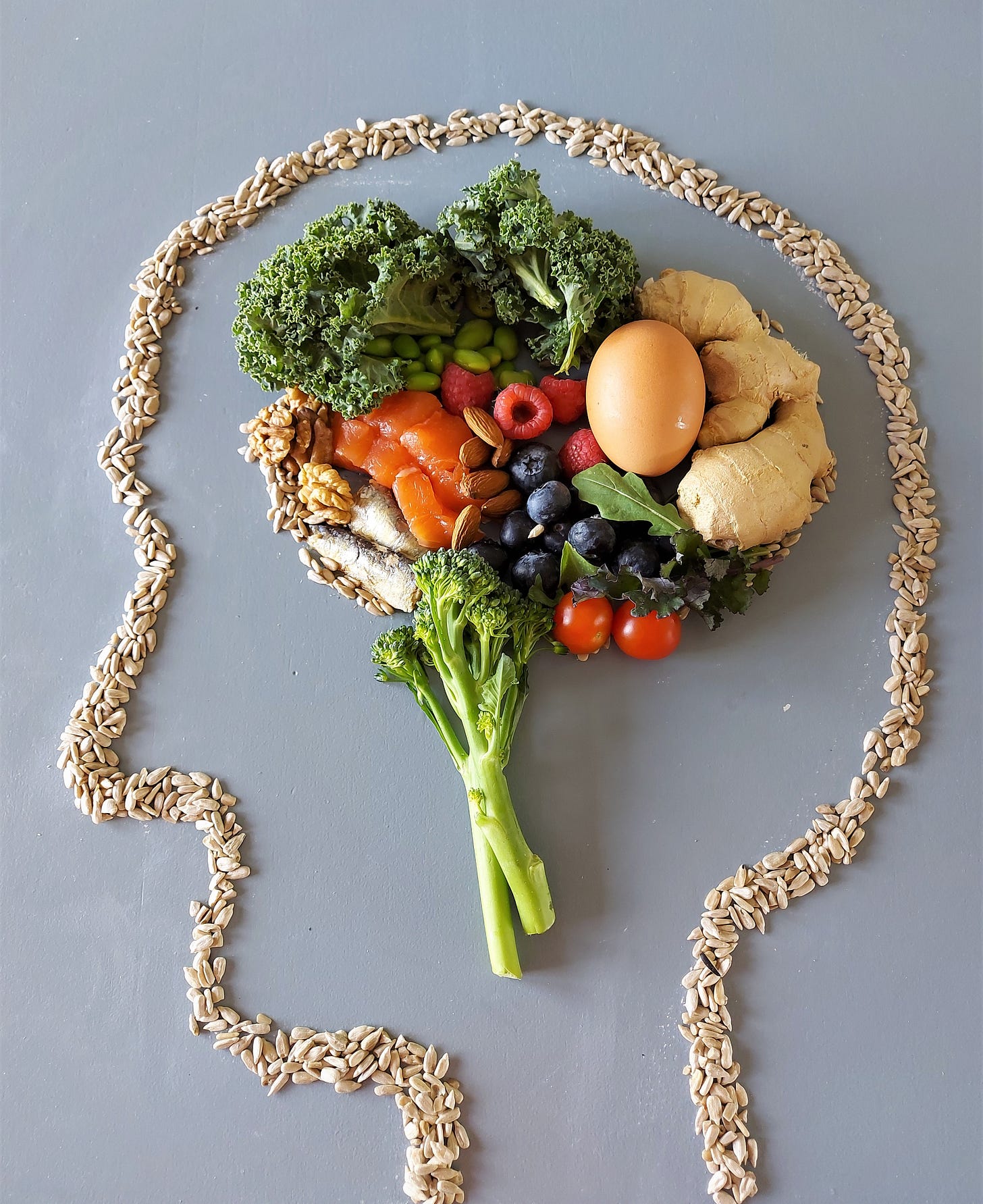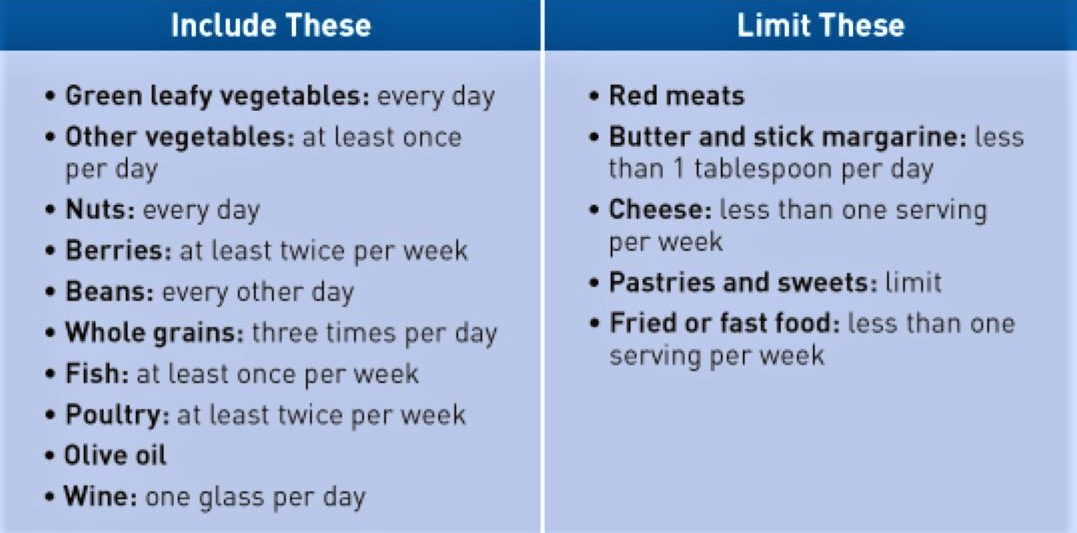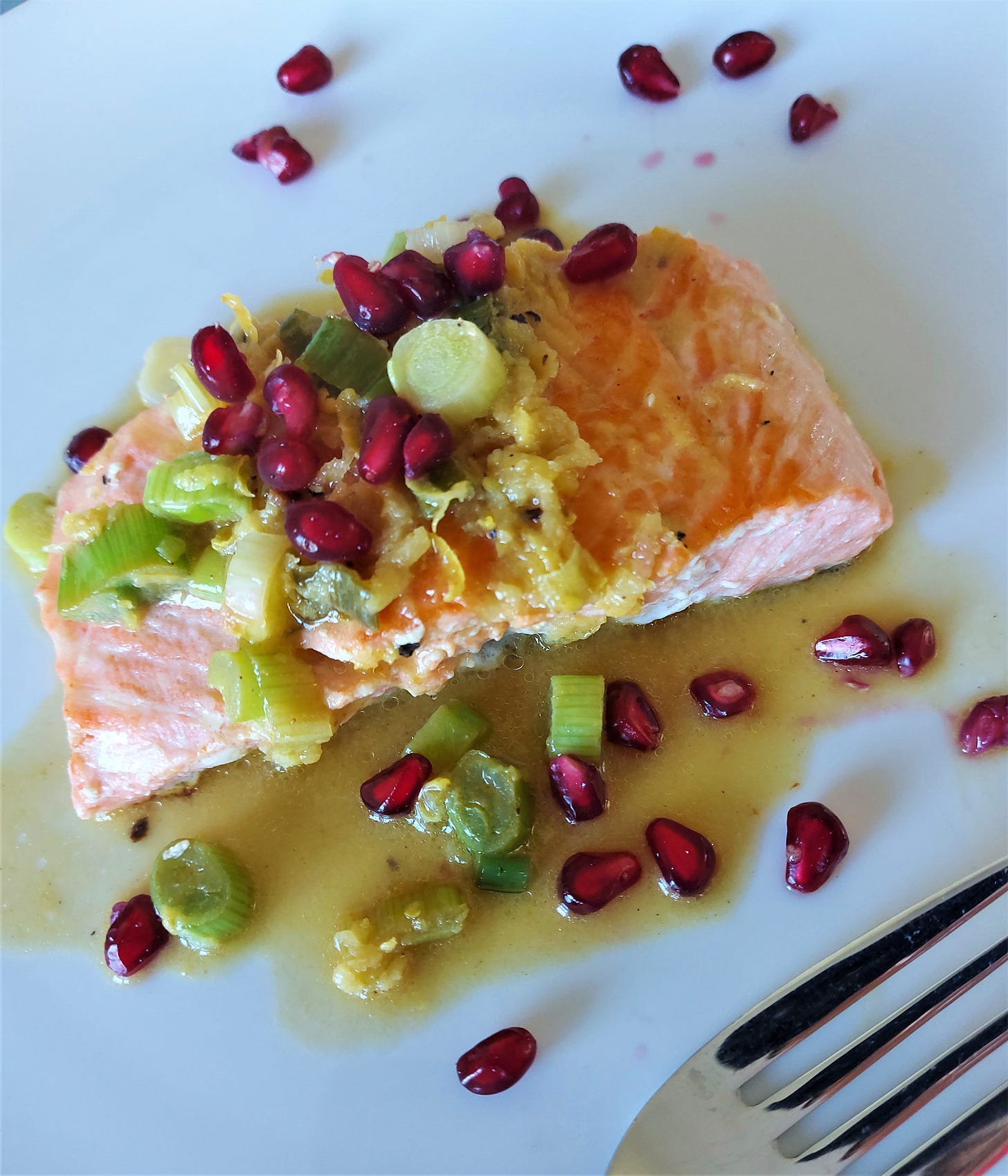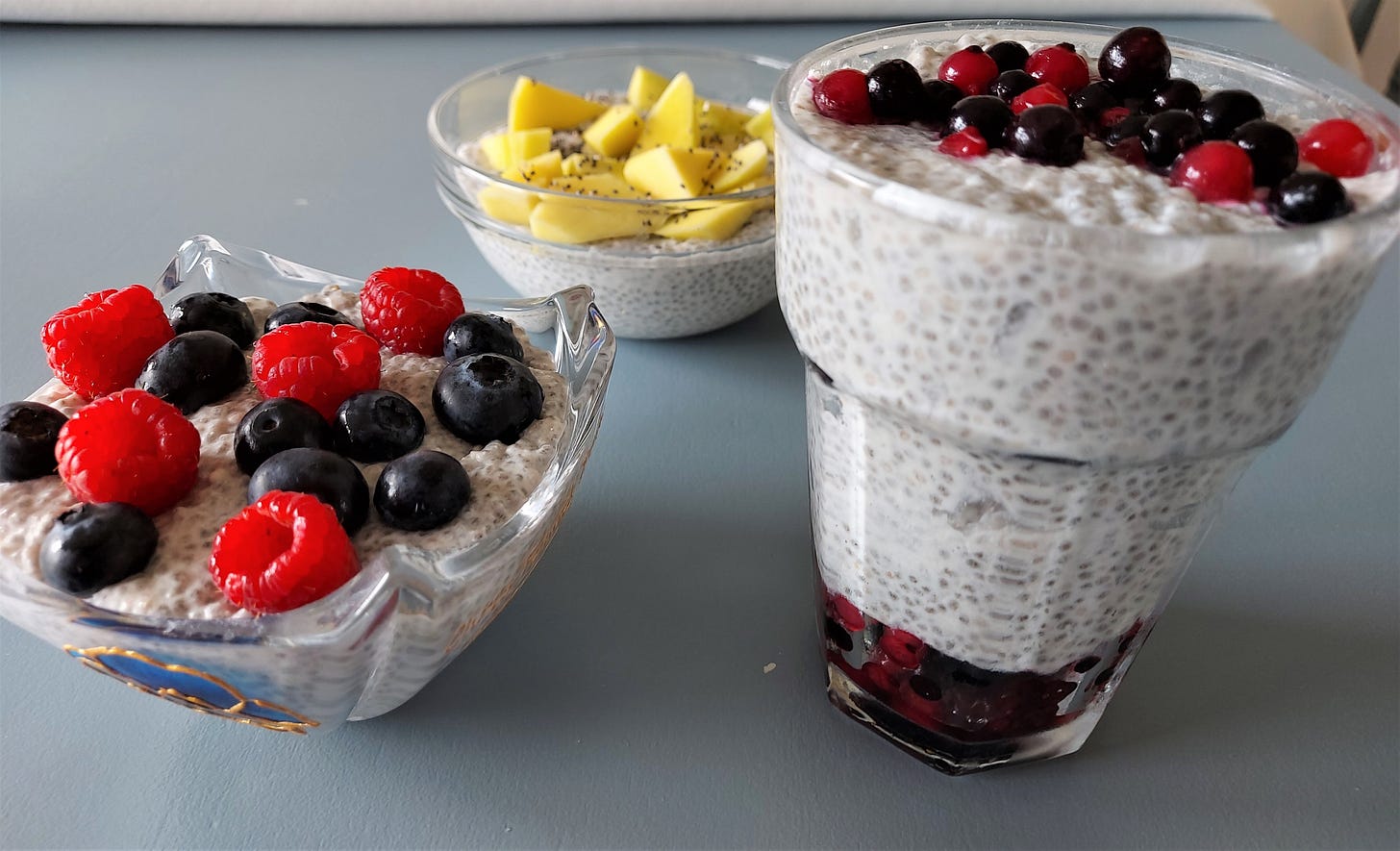Food For Thought
What are the healthiest foods for the brain?
“Let food be thy medicine and let medicine be thy food” (Hippocrates)
It’s over 2,000 years since Hippocrates was credited with those immortal words. Doesn’t it strike you as odd that nutrition is only slowly increasing in importance in disease prevention? When our mammies told us to eat our greens, that was probably the best bit of health advice we ever got. Research shows that dietary habits influence disease risk. While certain foods may trigger chronic health conditions, others offer strong medicinal and protective qualities.
This is particularly true in the case of brain health. It turns out that there is growing evidence that certain foods can help to slow down diseases of the brain and cognitive decline. We have heard a lot recently about what we should be feeding our gut. Now it’s time to turn our attention to what we should be feeding our brain.
What brain scans are revealing
Technology has dramatically improved what researchers know about the link between the brain and the nutrition it receives. Even though the brain only weighs 1.5kg, it consumes up to 25% of our energy needs. Brain scans of people on different diets have enabled researchers to keep track of how people’s brains are functioning over time.
One study compared the brains of people who normally eat a Mediterranean diet, i.e. vegetables, fruit, fish, whole grains, nuts and seeds – with people of the same age who eat a western diet containing more processed foods – fast food, sweets, fizzy drinks, etc. The results showed that people with a processed diet had signs of early brain shrinkage.
Other studies show alarming results. These include MRI’s of people in their 40s and 50s showing visible signs of the onset of brain disease in the form of beta-amyloid plaque deposits.
MIND diet
The good news is that there are steps we can take to improve brain health. Good food is a significant factor in healthy ageing. Of course, other factors like exercise, adequate sleep and social contacts play an important role too.
In a promising 2015 study, researchers developed eating guidelines – cleverly called the MIND diet. It highlights types of foods that nourish and protect the brain. In that study, participants were able to slow their rate of cognitive decline by up to 7.5 years. Subsequent studies have supported these results.
The MIND diet is a mashup of two existing diets, the Mediterranean diet, and the DASH diet. MIND (Mediterranean-DASH Diet Intervention for Neurodegenerative Delay) is quite a mouthful but in simple terms, you can think of it as a more elaborate Mediterranean diet.
Both the Mediterranean and the DASH (Dietary Approaches to Stop Hypertension) diet are known to benefit heart health also. The Mediterranean diet focuses on lots of vegetables, fruits, nuts, and heart-healthy oils. The DASH diet has even more servings of fruits and vegetables, more fibre, and less saturated fat.
There is nothing earth-shatteringly new in the foods that they advise us to eat, but they also suggest ones we should limit for the best outcomes. There are no surprises either when you see the foods mentioned below. As the brain is 60% fat, it benefits in particular from a diet rich in Omega-3 fatty acids, B vitamins and antioxidants.
Luckily, the foods you need for a healthy brain are not hugely different from those you need for a healthy body.
One nutritionist that reviewed the MIND diet said:
“While there’s an increased risk of dementia in those above 65 years of age, research shows that changing your food intake can make a big difference, whether that’s starting as early as your 20s or not until your 50s or 60s.”
Although it’s best to optimise your diet for brain health well before you experience any cognitive decline, making these changes whenever you can put you at an advantage.
Recommendations of the MIND diet
The inclusion of red wine in the MIND diet comes as a surprise to many. However, it’s important to note that the portion size (5oz) is very small. It was included because it’s an important part of the Mediterranean diet. There are no studies that show the brain benefits from drinking wine above this minimal level.
Interestingly, the MIND diet researchers have a randomised trial currently underway that has no red wine in it. The results of that study are due to be published this year. They are eagerly awaited by many!
In a recent interview, Dr. Martha Clare Morris – creator of the MIND diet – was asked for a daily sample menu. This is what she suggested:
“I try to have vegetables for breakfast, lunch and dinner. One of my favorite breakfasts is a slice of whole-wheat toast with some avocado slices and an egg on it. I sauté some spinach, squeeze lemon juice onto the toast, and that is delicious. For lunch, I try to eat a salad every day. You can put beans, shrimp, seafood or vegetables on it. For dinner, you can have a piece of salmon with sweet potato and broccoli. Those three meals would provide you with a lot of brain-healthy nutrients.”
Recipe #1 - Roasted Salmon with Citrus & Ginger
The refreshing citrus flavours combine perfectly with the fiery ginger and the crunch of the pomegranate seeds to make this very healthy, satisfying dish.
Serves 4
Ingredients
4 x 6oz salmon fillets
4oz/120ml fresh orange juice
Zest of a lemon
Juice of a lime
1 tsp ginger, finely grated
1 tbsp extra virgin olive oil
3-4 scallions/spring onions
1 tsp Dijon mustard
Pomegranate seeds (½ fruit)
Method
Preheat the oven to 400°F/200°C
In a small bowl whisk together all the ingredients except for the salmon and pomegranate seeds.
Line a baking dish with parchment paper or aluminium foil.
Place the salmon fillets on the dish, skin side down.
Cover the salmon fillets with half the whisked mixture and roast for 10 minutes.
Brush the salmon with the rest of the mixture and cook for a further 10 minutes until the salmon can be flaked with a fork (cooking time depends on the thickness of the salmon).
Sprinkle pomegranate seeds on top of the salmon fillets.
Recipe #2 - Chia Seed Pudding
Chia seeds are high in Omega-3 fatty acids as well as delivering a massive amount of nutrients. They are incredibly filling due to their fibre and protein content. You only need 3 ingredients to make this pudding - milk, seeds and a sweetener. If you want to leave out the sweetener, simply add fresh fruit instead.
Ingredients
1½ cups unsweetened almond milk (or milk of choice)
1 tablespoon of honey/maple syrup/sugar
½ cup chia seeds
All you need to do is combine everything into a jar, stir well, cover and leave it in the fridge overnight.
The seeds will absorb the milk and swell up to produce a rich tapioca-like pudding. The non-dairy milk seems to work best as it contains a stabiliser (gellan gum). This results in a creamier and thicker pudding.
Enjoy!
—
Disclaimer
This blog is for informational purposes only and should not be construed as medical advice. If you have any questions about your own nutrition plan, please consult your doctor.





